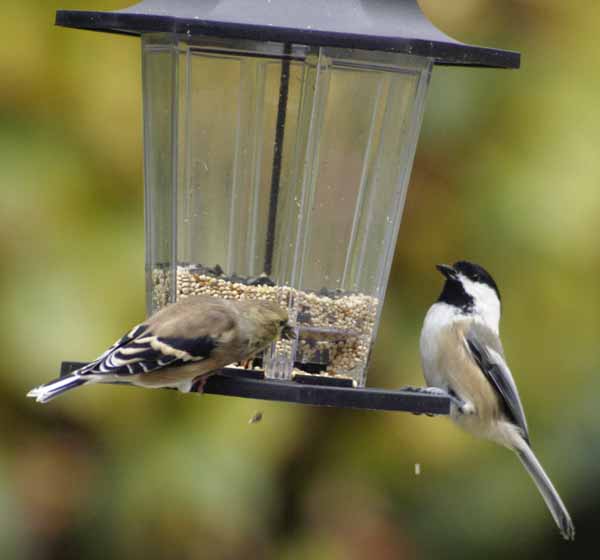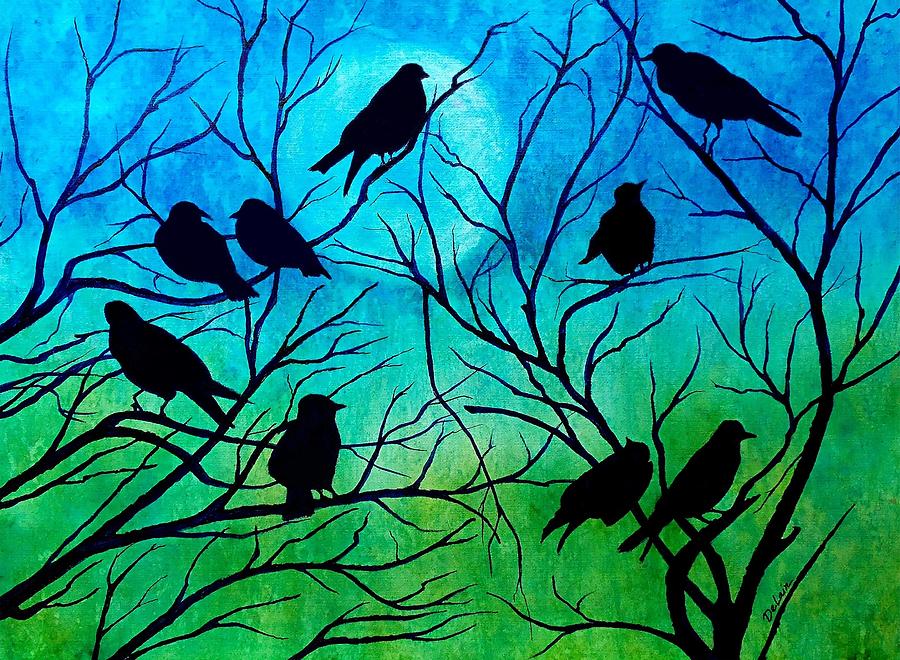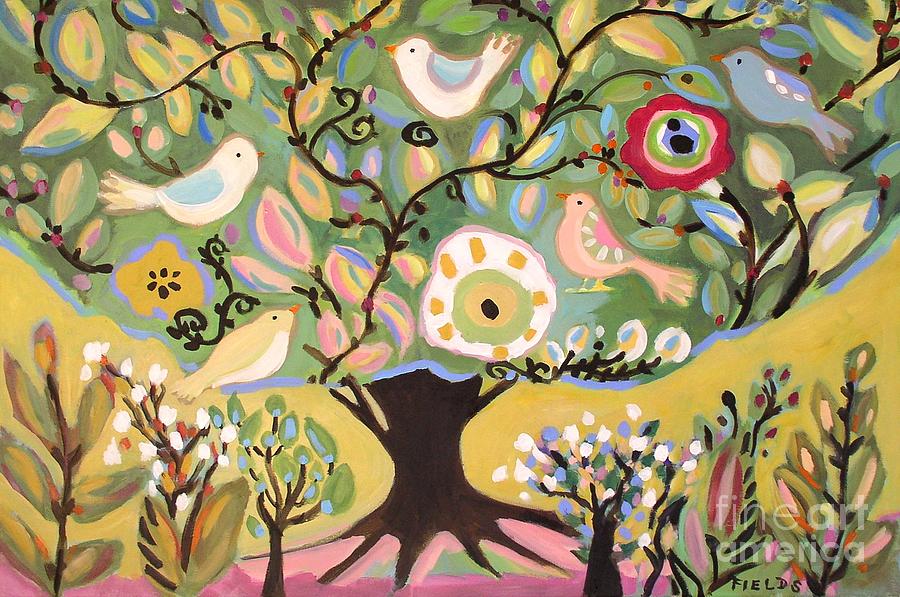Pentecost 3B, June 14,
2015
 Mark 4:26-34 26He
also said, “The kingdom of God is as if someone would scatter seed on the
ground, 27and would sleep and
rise night and day, and the seed would sprout and grow, he does not know how. 28The
earth produces of itself, first the stalk, then the head, then the full grain
in the head. 29But when the grain is
ripe, at once he goes in with his sickle, because the harvest has come.”
Mark 4:26-34 26He
also said, “The kingdom of God is as if someone would scatter seed on the
ground, 27and would sleep and
rise night and day, and the seed would sprout and grow, he does not know how. 28The
earth produces of itself, first the stalk, then the head, then the full grain
in the head. 29But when the grain is
ripe, at once he goes in with his sickle, because the harvest has come.”
30He also said, “With
what can we compare the kingdom of God, or what parable will we use for it? 31It
is like a mustard seed, which, when sown upon the ground, is the smallest of
all the seeds on earth; 32yet
when it is sown it grows up and becomes the greatest of all shrubs, and puts
forth large branches, so that the birds of the air can make nests in its
shade.”
33With many such
parables he spoke the word to them, as they were able to hear it; 34he
did not speak to them except in parables, but he explained everything in
private to his disciples.
 A few weeks ago, I went on a
communion visit to one of our parishioners who has a hard time making it to
church. She graciously welcomed me into her home, and when I sat on the couch,
she insisted I take the easy chair facing the window, the better to enjoy the
many birds swooping down to feast at her bird feeders. As we chatted about
life, her memories and important relationships, our conversation was punctuated
by comments about the birds outside.
A few weeks ago, I went on a
communion visit to one of our parishioners who has a hard time making it to
church. She graciously welcomed me into her home, and when I sat on the couch,
she insisted I take the easy chair facing the window, the better to enjoy the
many birds swooping down to feast at her bird feeders. As we chatted about
life, her memories and important relationships, our conversation was punctuated
by comments about the birds outside.Do you know any people like Stellar’s Jays? How are you doing with living alongside them? Or maybe you are courageous enough to admit that you might be the jay yourself.
 In our gospel and in our Old
Testament readings for today, we have parables about birds of the air, winged
creatures of every kind. The promise is that they will all roost together, that
God will give them all a resting place. The chickadees and the owls, the wrens
and the jays.
In our gospel and in our Old
Testament readings for today, we have parables about birds of the air, winged
creatures of every kind. The promise is that they will all roost together, that
God will give them all a resting place. The chickadees and the owls, the wrens
and the jays.
In parables, we come to
understand the world around us through stories. Parables break us open and
break us out of stuck thinking.
The parable we hear from
Jesus today is that of the mustard seed. A common interpretation of this parable
is that small things can accomplish much. And that is one meaning of the
parable, to be sure. But parables are meant to contain multiple truths.

Mustard seeds were not a seed that farmers planted intentionally. In fact, it was a weed. So why does Jesus talk about sowing a mustard seed? In Jesus’ time, it had been 5 generations since the Romans had come to town. People were losing hope that anything would ever change, that God would or could rescue them. Yet they kept hope alive, even though times were desperate. In the whole region of Galilee, only 3 landowners owned most of the land. And the descendents of the former owners? The lucky ones were tenant farmers. Most were day laborers, lining up outside of their version of the parking lot of Lowe’s hardware.
Those day laborers knew they needed a job to feed their families, so they would fill their pockets with insurance of next year’s work. They filled their pockets with mustard seed, and as they worked, they sowed the seed. It not only insured the need for workers in the next year, it also probably felt pretty good to be thumbing their noses at the owners and the Romans who had stolen the land.
 |
| Five Birds in Garden Tree by Karen Fields |
But Jesus does not simply
leave the shrub of the mustard seed as a
symbol of resistance. It becomes something more- a symbol of God’s peace. Using the image of the tree that becomes the
roosting place for every bird of the air, every winged creature, Jesus revives
the imagery from the prophets. The
mustard shrub remains a symbol of resistance, but Jesus makes the point that
resistance is not the end, God’s peace is. The point of God’s ways is not war
but peace. God’s purpose for all things is reconciliation and wholeness, rest
and restoration.
| Copyright Dan Erlander |
Jesus tells the crowd and us:
Go sow the seeds of resistance, but when you are done, know that God will make
room in the tree for all the birds, even the Stellar’s Jays, even the Romans.
There is room for everyone in
the branches of God’s shrub. There is room for us and there is rest for
everyone.
So our job is to be a bird in
God’s tree, participating in the coming of God’s kingdom, making room for one
another, insomuch as we are able. This is our prayer every time we pray the
Lord’s Prayer. In his explanation of the Lord’s Prayer in the Small Catechism, Martin
Luther wrote: In fact, God’s kingdom
comes on its own without our prayer, but we ask in this prayer that it may also
come to us.
 In a moment, we will bless
our graduates and give thanks for them. As they go out to work in the world,
they will confront bullies and aggression.
May they be strong, sowing seeds of resistance, and may they also know God’s
love for their enemies.
In a moment, we will bless
our graduates and give thanks for them. As they go out to work in the world,
they will confront bullies and aggression.
May they be strong, sowing seeds of resistance, and may they also know God’s
love for their enemies.
I pray for them and for us: May we all be part
of God’s kingdom of justice and peace, and may God’s grace and mercy restore us
and unite us. Amen.
No comments:
Post a Comment